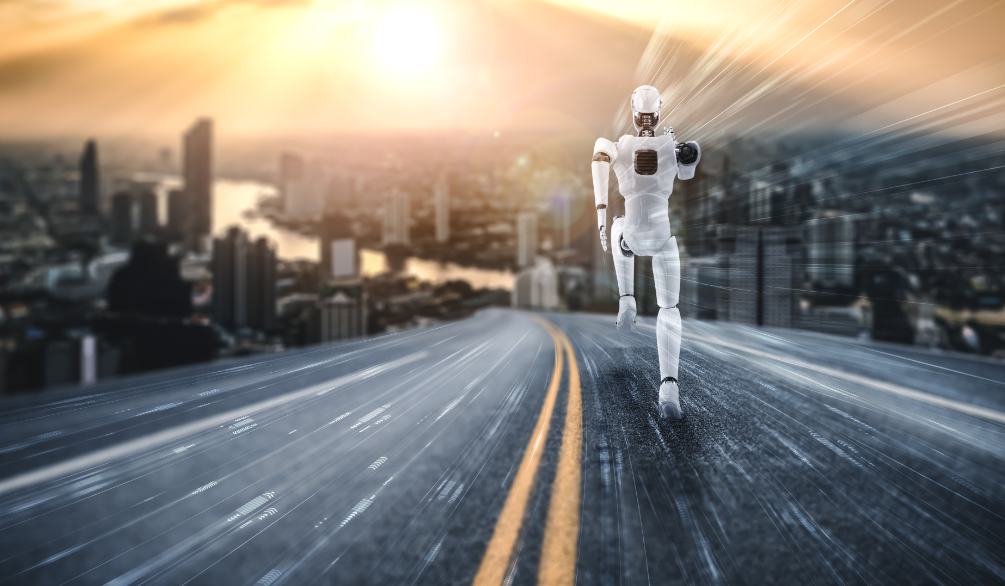Home >Technology peripherals >AI >Key industries that could run on artificial intelligence by 2030
Key industries that could run on artificial intelligence by 2030
- WBOYWBOYWBOYWBOYWBOYWBOYWBOYWBOYWBOYWBOYWBOYWBOYWBforward
- 2024-03-28 14:58:42779browse
Artificial intelligence (AI) continues to develop rapidly in various fields, and its applications in various fields are becoming increasingly obvious. It is expected that by 2030, the field of artificial intelligence will revolutionize many industries, change the way enterprises operate, and improve efficiency, productivity and innovation. This article will explore some of the top industries poised to harness the power of artificial intelligence over the next decade.

Healthcare: By 2030, the healthcare industry will benefit significantly from AI-driven technologies. AI-powered diagnostic tools can analyze medical images, such as X-rays and MRI scans, with greater accuracy and speed than human radiologists, allowing for earlier detection of disease and improved patient outcomes. Additionally, AI algorithms can help healthcare providers develop personalized treatment plans based on a patient’s genetic profile and medical history, allowing for more effective and targeted interventions. Additionally, AI-enabled robotic surgical systems can assist surgeons during complex procedures, reducing the risk of human error and shortening recovery times.
Finance: The financial industry is already applying artificial intelligence to a wide range of applications, including fraud detection, risk management, and algorithmic trading. By 2030, artificial intelligence is expected to play a more prominent role in shaping the future of finance. AI-powered chatbots and virtual assistants will provide consumers with personalized financial advice, while machine learning algorithms will analyze large amounts of data to identify market trends and investment opportunities in real time. In addition, the combination of blockchain technology and artificial intelligence algorithms will simplify cross-border payment and trade settlement processes, making transactions faster, safer and more transparent.
Transportation: By 2030, artificial intelligence will revolutionize the transportation industry, paving the way for autonomous vehicles, intelligent transportation systems, and drone delivery services. Self-driving cars equipped with artificial intelligence algorithms will drive safely and efficiently on the roads, reducing accidents and traffic congestion. An AI-powered predictive maintenance system will monitor vehicle conditions in real-time, preemptively identifying and resolving mechanical issues before they escalate. this. Additionally, AI-powered traffic management systems will optimize traffic flow and minimize travel times, resulting in a smoother and more sustainable transportation network.
Education: By 2030, with the integration of artificial intelligence technology, the education industry will undergo major changes. The AI-powered adaptive learning platform will personalize educational content and courses based on students’ individual learning styles, preferences and performance metrics. Virtual reality (VR) and augmented reality (AR) technologies enhanced by artificial intelligence algorithms will create immersive learning experiences, allowing students to explore complex concepts in interactive virtual environments. Additionally, AI-powered chatbots and virtual tutors will provide students with instant feedback and support, thereby increasing engagement and retention.
Agriculture: By 2030, artificial intelligence has the potential to revolutionize the agricultural industry, enabling farmers to optimize crop yields, reduce resource waste and mitigate environmental impact. AI-powered drones equipped with sensors and cameras will monitor crop health and soil conditions from above, allowing farmers to identify areas that require attention and intervention. Machine learning algorithms will analyze weather patterns, soil data and historical yield data to generate insights and recommendations for crop management practices. In addition, AI-driven robotic systems will automate tasks such as planting, harvesting and crop spraying, thereby increasing operational efficiency and reducing labor costs.
In 2030, artificial intelligence is expected to transform many industries, revolutionize the way businesses operate, and improve outcomes across industries. From healthcare and finance to transportation, education and agriculture, the potential applications of AI are vast and far-reaching. As organizations continue to invest in AI-driven technologies and accelerate innovation, the world of the future is expected to realize AI's central role in driving progress, innovation, and prosperity.
The above is the detailed content of Key industries that could run on artificial intelligence by 2030. For more information, please follow other related articles on the PHP Chinese website!
Related articles
See more- What are the main applications of artificial intelligence in education?
- Brazil's central bank plans to launch digital currency in 2024 to start the road to financial innovation
- How to create a blockchain using Go language
- Benefits of GenAI in Healthcare
- How to use blockchain technology to deal with the threat of deepfake videos

